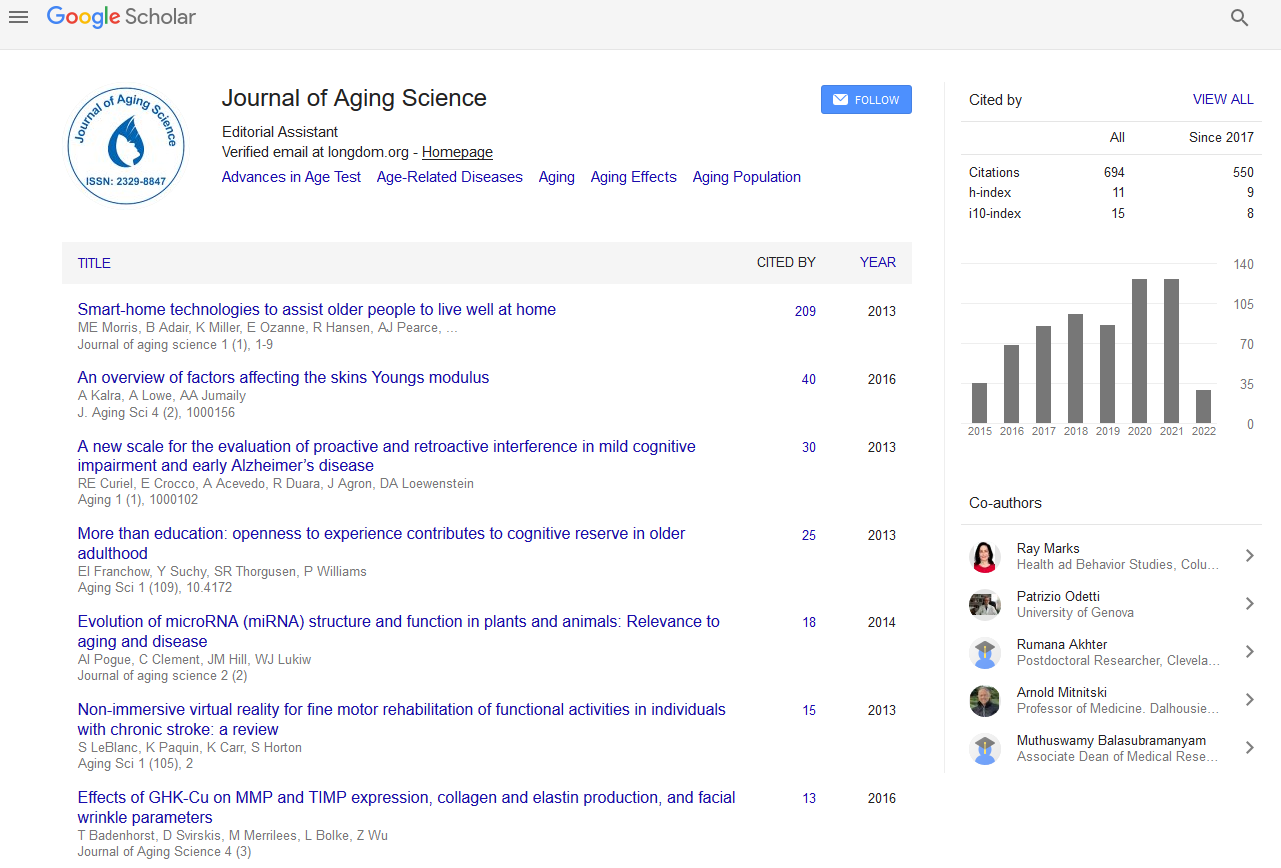PMC/PubMed Indexed Articles
Indexed In
- Open J Gate
- Academic Keys
- JournalTOCs
- ResearchBible
- RefSeek
- Hamdard University
- EBSCO A-Z
- OCLC- WorldCat
- Publons
- Geneva Foundation for Medical Education and Research
- Euro Pub
- Google Scholar
Useful Links
Share This Page
Journal Flyer

Open Access Journals
- Agri and Aquaculture
- Biochemistry
- Bioinformatics & Systems Biology
- Business & Management
- Chemistry
- Clinical Sciences
- Engineering
- Food & Nutrition
- General Science
- Genetics & Molecular Biology
- Immunology & Microbiology
- Medical Sciences
- Neuroscience & Psychology
- Nursing & Health Care
- Pharmaceutical Sciences
Abstract
Psychosomatic Health in Elderly People for Preventing Frailty: The role of IGF-1 and BDNF in the Muscle and the Brain
Mitsugu Hachisu*, Masayuki Obayashi, Mari Kogo and Kazushige Ihara
The elderly population of people aged > 65 years is rapidly growing up in developed countries, including Japan, and becoming a burden by increasing caregiving and social security costs. Prolonging a healthy life span without caregiver help would reduce the social burden. Frailty in elderly people can cause accidental falls causing them to be bed ridden, but constant exercise could help prevent such accidents. Various exercises enhance the synthesis and release of neurotrophic factors such as IGF-1 and BDNF; these neurotrophic factors enhance neuronal growth and survival in the brain prevent muscle atrophy and sometimes contribute to muscle hypertrophy in elderly people. These exercise-induced neurotrophic factors can thereby help prevent the lowering of cognitive performance, processing speed and mood in elderly people including those with Alzheimer’s disease or Parkinson’s disease.
In this review, we emphasize that IGF-1 and BDNF work as anabolic growth factors for skeletal muscle, play a role in the neurogenesis, synaptogenesis, and neuronal survival in the brain, ameliorate cognition, and stabilize psychiatric mood. IGF-1, further, has activities in the elimination of amyloid-β protein by activating protein transportation at the choroid plexus and angiogenesis acting on brain vessels. Thus, elderly people are recommended to exercise regularly for their health and avoid the condition of frailty.
Published Date: 2020-04-16; Received Date: 2020-03-19


